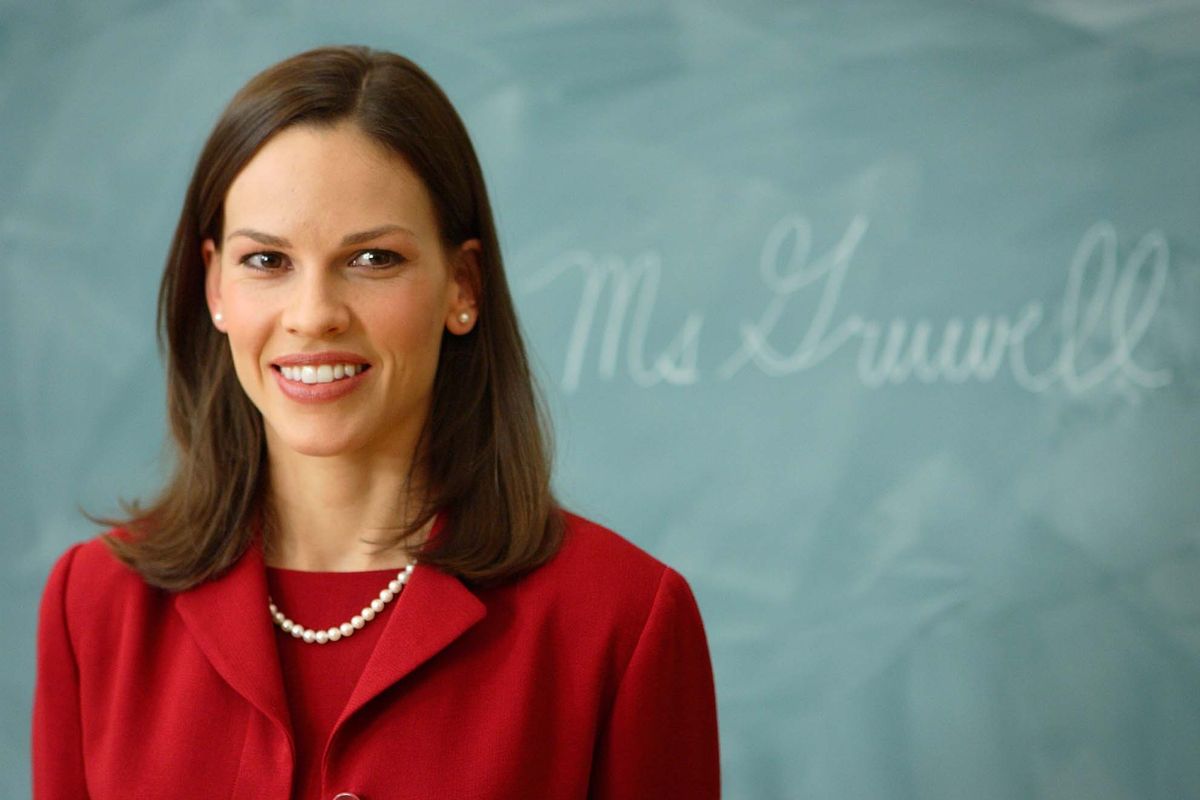Hard work continues long after credits roll
Classroom activist more than happy to be a success behind the scenes

Mention “Erin Gruwell” in Spokane and you won’t get flashes of instant recognition.
But mention that Hilary Swank played her in the 2007 film “Freedom Writers” and the “oh-yeahs” begin.
On Wednesday, Gruwell will speak at the 29th annual YWCA Women of Achievement Luncheon at the Spokane Convention Center.
In 1994, as a beginning teacher, Gruwell motivated her “unteachable” students through writing. They told their stories and listened to the stories of brave others who had fought poverty and racism, including Holocaust survivors.
The book about this classroom journey, “The Freedom Writers Diary – How a Teacher and 150 Teens Used Writing to Change Themselves and the World Around Them,” was published in 1999.
Gruwell, 42, runs the Freedom Writers Foundation, which replicates her early classroom success throughout the United States. Though based in Long Beach, Calif., she’s on the road a lot spreading the Freedom Writers message to students and teachers.
Last week, she took a 15-minute breather to chat by phone with The Spokesman-Review.
Q: Why did you say yes to speak in Spokane?
A: My first visit was to Yakima years ago, and I have been back (to Washington) many times since. I find Washingtonians to be gracious and grounded.
Even though the demographics are different than the community I taught in in Long Beach, they are very receptive to the message of hope, acceptance, and I used to use the word tolerance until a very dear Holocaust survivor friend of mine corrected me and said, “It’s not enough just to be tolerated. Wouldn’t it be great if people accepted one another?”
I always feel this kind of acceptance in Washington.
Q: How did it feel to see Hilary Swank play you on the big screen?
A: Well what’s ironic is she is from Bellingham. She is very proud of her roots. She grew up really poor. She connected with my students’ story.
We both had this insecurity when we actually met. Mine was she was this two-time Academy Award winner glamour gal. Her insecurity was she’d never had a traditional education.
She didn’t finish high school traditionally. She never went to college. She wanted to prove to me she was very smart and she is. She’s very worldly and very well-read. We learned a lot from one another.
The people who produced the film make strong films about strong women. So it was this coveted role in Hollywood, and I met many talented actresses vying for the part. They were all tall, perfect, blond and emaciated, and I thought you know it’s not me. I kept coming back to Hilary.
She was my first choice. She had a lot of my mannerisms down. When my friends and family saw the film, they said, “Oh my God, she nailed you.” And she did. She spent the time.
Q: It’s been almost 20 years since you first walked in the classroom. You’ve kept the passion going this long, especially during the recession. How have you kept it alive?
A: Our story speaks to a lot of people who feel they don’t have a voice. Our story gives them a voice, makes them feel they are not so alone. Ironically, when the economy is tough, even though some of the big CEOs are not forthcoming with donations, we just got a $5 check from someone in a maximum security prison.
We’ve survived because people really believe in us. We respond to every email and letter and our network just keeps growing.
Holocaust survivor Renee Firestone represented herself in the feature film. She constantly reminds us how important it is to tell stories, how important it is to continue to tell the stories for those who are no longer with us.
Q: Anything you’d like to add?
A: When you get a collective group of people together, like we will in Spokane, there is that tipping point. To have a roomful of movers and shakers together, I hope they don’t underestimate the power of that tipping point.
Amazing things are going to happen in Spokane because of this event.